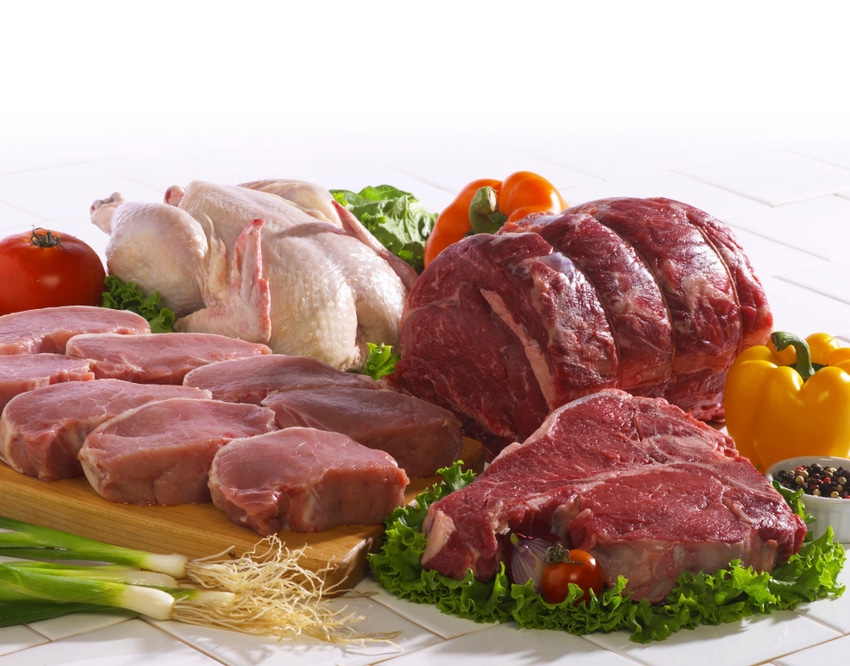
The global meat sector will be valued at $1.5 trillion by the year 2022. If a new niche industry like cell-cultured meat could carve out just 5% of that market, that would represent a $75 billion industry and a major disruption to the current market.
That means that alternative meat could be a huge industry.
That is what major investors are counting on. They have made significant progress on reducing the cost of this meat. In 2013, it cost $1.2 million per lb. Today it is below $50 per lb. and is expected to drop to $10 per lb. by next year.
This is still a premium, but it gets the cost down to the point where the average consumer could afford it.
A matter of taste
The biggest divide between traditional and cell-cultured meat still remains the taste. By and all, cell-cultured meat still tastes bad, unless you like to eat rubber. But this divide will shrink over time.
At some point, the companies behind cell-cultured meat will have products that taste exactly like conventional meat. The texture will be on point, too. So if the taste and the price will virtually be the same, what will be left to differentiate the products?
It will come down to marketing.
Alternative meat will have to tell a story that convinces consumers why their product is better. In doing so, there will be a strong likelihood they will make false or misleading statements, attempting to denigrate the traditional industry.
Most consumers still strongly believe that meat should and does come from animals. Alternative Meat activists know this, which is why they are eager to use tricky marketing tools to fool consumers.
‘Clean’ meat?
The first mistake created by cell-cultured meat activists, was by referring to their product as “clean meat.” Of course, this strongly implied that meat derived from livestock was in some way dirty. It is inherently judgmental and looks to imply that traditional livestock production is somehow dirty or bad for us.
Activists seem surprised that cattle producers took offense at this accusation. Therefore, livestock producers began referring to alternative meat as “fake meat.”
Big food companies have always masked their products under the guise of health, progress and innovation. History provides us many examples of how companies use marketing to influence unsuspecting consumers. Coca-Cola was once marketed as a health tonic. Candy bars give us power and energy (“Snickers really satisfies”).
To be clear, the introduction of new foods is a central part of American innovation and capitalism. It is to be encouraged. The downside is that the cell-cultured meat industry looks to disparage and discredit small, family made, all-natural products in order to gain market share.
It is unlikely both livestock producers and cell-cultured meat will see eye to eye. Activists view livestock production in any form as unethical. They cannot or will not ever get over the fact that livestock is eventually slaughtered in high numbers. They believe they are on a righteous crusade to right the world of wrongs. I have read where they compare themselves to great innovators like Henry Ford, as if they have discovered the cure for cancer.
Activists like to blame livestock for greenhouse gas emissions. But at the onset of the pandemic, atmospheric scientists were stunned at how quickly pollution dissipated across the planet in major urban areas as activity came to a screeching halt. Within a few weeks, you could learn far more from your own eyes than you could from a UN report. We could see the cleaner air from outer space over cities like New York, London and Beijing. And it wasn’t from having fewer cattle around.
It confirmed what we already knew -- that the real culprit was the overpopulated cities due to congested traffic and lack of greenspace. In other words, the very activists hurling accusations at the agriculture industry were guilty of contributing far more to climate change.
Matthew Kruse is the President of Commstock Investments. He can be reached at [email protected] or call 712-227-1110.
Futures trading involves risk. The risk of loss in trading futures and/or options is substantial and each investor and/or trader must consider whether this is a suitable investment. Past performance is not indicative of future results. Trading advice is based on information taken from trades and statistical services and other sources that CommStock Investments believes to be reliable. We do not guarantee that such information is accurate or complete and it should not be relied upon as such. Trading advice reflects our good faith judgment at a specific time and is subject to change without notice. There is no guarantee that the advice we give will result in profitable trades.
The opinions of the author are not necessarily those of Farm Futures or Farm Progress.
About the Author(s)
You May Also Like






